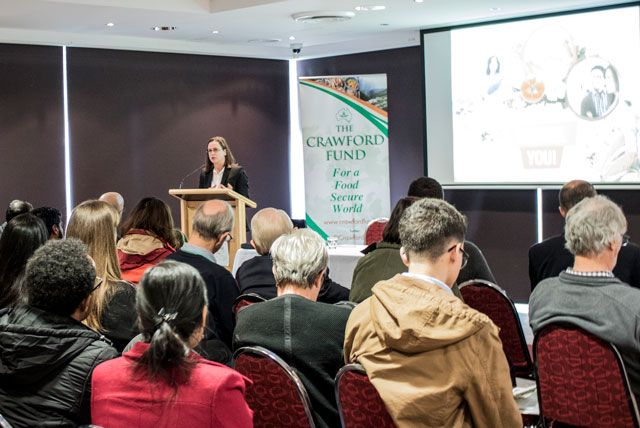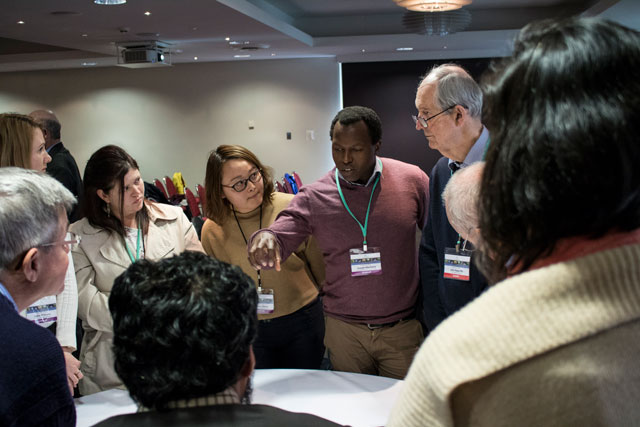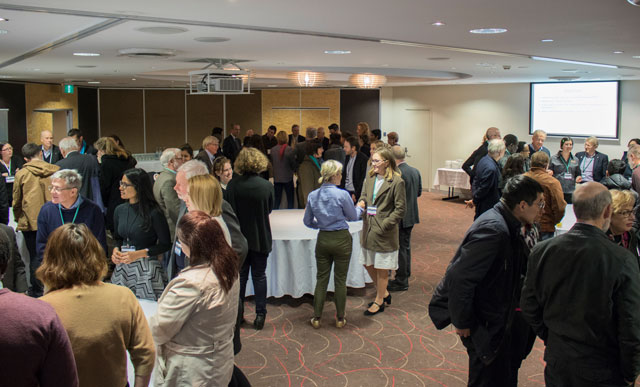

Lessons from conference scholars
August 22, 2017
As part of the scholar activities held around our annual conference, there is a session around lessons for young people wanting to get involved in agriculture for development and working in agriculture overseas. The following are a synthesis of those ideas from last year and this year’s scholar days. Many thanks to the RAID group who assisted Cathy Reade, our Director of Public Affairs and Communication, in putting together the two days of activities this year.

Areas of specialty
- Be a jack of all trades and a master of one. Choose an area to specialise in but develop skills that will allow you to work in a multidisciplinary team. This includes being able to work with biophysical and social scientists, gender specialists and economists.
- You can have a lot of different jobs over your career and may shift between focusing on research for development and direct development orientated positions. It’s important to understand your strengths and where you want to target your efforts in international agriculture.
- Social scientists as well as gender and value chain specialists need to know where they fit within research for development projects and how they can contribute to research and development activities.
- With the increasing adoption of technology, ICT’s, and AI in our personal and work life, it’s a good idea to try coding and/or specialising in agricultural technology.
Skills to be a good researcher/volunteer
- Know what work motivates you and transition your career path to align with that – if you’re not sure that is fine, but take time out to reflect on this. You will develop your diverse skill sets testing out roles, and your specialty when you find your preferred career path.
- Knowing the above will help you sell yourself, recognise your strengths and what you can bring to a research team
- Accept knockbacks and use it as a learning experience
- Individuals can make a difference, it starts with doing something and remember, if you’re waiting, there’s no “right” time to start working in international agriculture
- With a type of work that is inherently complex, the best solutions are often simple
- Develop skills in using digital technologies to collect and manage data
- Publications are important to progress your research career. Remember, you can publish research from international research projects by combining a range of experiments to tell a story or by publishing about the method you’ve used.
- Engage with a range of stakeholders
- Tell your story based on what people value and make it easy to understand

Managing family life
- RAID can match you with a mentor to help you manage the demands of a career in international agriculture with family life. Contact RAID if you would like a mentor.
- Key things to thing about: a supportive partner is essential, children and partners can live in country whether you’re volunteering or employed and it’s important to work for an organisation that will support your career and family.
Short term funding
- Go to conferences, talk to people, keep your options open
- Get a range of funding sources to keep you employed
- Keep looking out for jobs, say yes to everything as not everything works out (even when the contract has been signed!)
Value of doing a PhD
- Do a PhD because you want to do it, a PhD doesn’t guarantee you a job and in some institutions (such as some positions in the UN) you only need a masters
- Once you finish your PhD you still need to develop a lot of other workplace skills
- The value of a PhD is learning how to be a researcher, the topic isn’t as important but good supervisors are essential

Mentors and volunteering
- The Crawford conference and RAID provide mentoring for early career agricultural researchers not found elsewhere
- RAID can link early career researchers with mentors. If you would like a mentor, contact RAID and explain what you would like the mentor to help you with (can be after conference)
- RAID can link organisations with volunteer or PhD candidates
Other points!
- Get a good accountant if you’re moving between countries
- Agriculture in school curriculums is an important part of increasing the number of young people in agriculture
- Tell your “good news stories” about agriculture to help continue to improve the image of agriculture
- Gender empowerment in farming is essential not only for ethical reasons, but also simply for greater access to the combined IQ potential for solving the problem of feeding the world now and in 2050. However in some agricultural contexts, the simple priority of subsistence means that promoting gender empowerment may only alienate essential partners and slow progress. Finding the right timing for gender empowerment is therefore difficult in some circumstances.
- With the increasing amount of data available, it is important to consider what the value of data is, and what a suitable price for it might be.
- To feed not only a hungry world but a malnourished world, we need to focus on both farmland gross productivity, and the productivity of nutritious food.
- Increasingly in this world, we need to respect a diversity of opinions, a diverse diet, diverse management strategies, and diverse farming systems.




